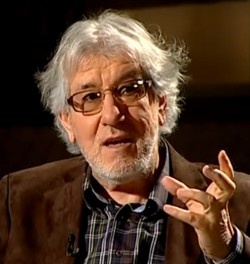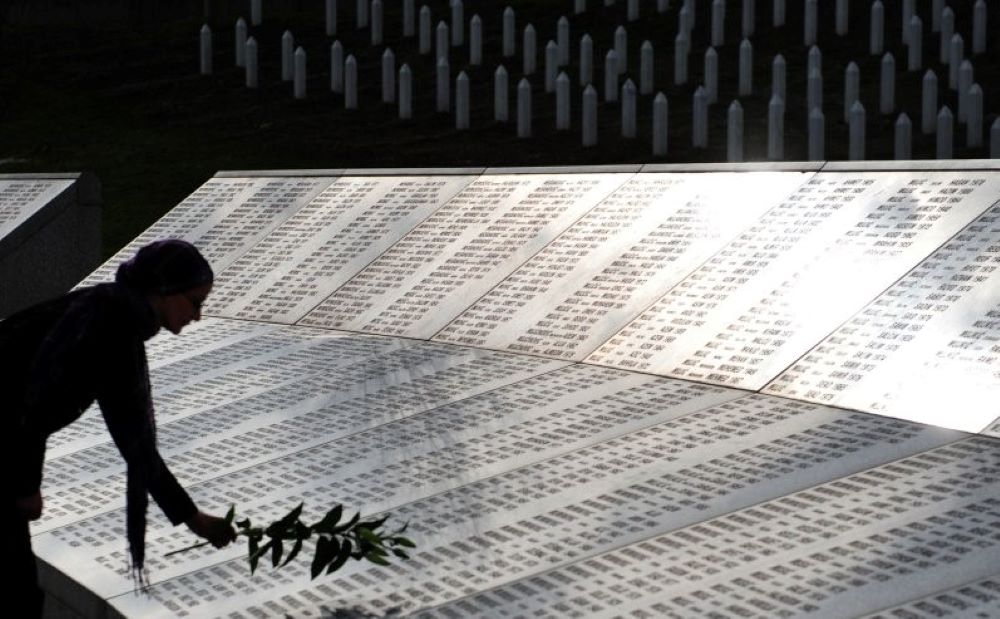This orchestrated, systematic, ideological, public, and literary negation of genocide through the process of renaming it as a ‘great’ and ‘terrible crime’ opens up numerous psychological, moral, ethical and political questions.

Dr Esad Bajtlal
When it is without morals and principles,
nationalism becomes a veil
obscuring impure goals.
Dj. Petrov
Rather than presenting facts, arguments, and documents, the strong publishing hyper-production by today’s right wing current opts for projected fabrications and ideologically motivated gossip, conscious refutation and denial of a real historical event. More precisely, the literary denial of genocide takes place through writing about a ‘great’ and ‘terrible crime’. The task of these ‘books’ is not to be Books – a means or medium of spreading scientific truth – but forgeries that, under the auspices of a book, plant, preserve, and share right-wing ideological narratives. In this way, to the uncritical audience, Srebrenica becomes everything but what it really is – a place of genocide and the biggest execution site ‘in Europe since the Second World War’.
This orchestrated, systematic, ideological, public, and literary negation of genocide through the process of renaming it as a ‘great’ and ‘terrible crime’ opens up numerous psychological, moral, ethical and political questions. Questioning the meaning and significance of political structures which don’t see a ‘great crime’ as a problem. Meaning: we committed a ‘great crime’, a ‘terrible crime’ – so what? Thus, structures that do not see the act of a ‘great’ and ‘terrible crime’ as a humanly controversial act, indirectly affirm it as indisputable and implied. A kind of inertial constant of their historical practice, which doesn’t make them feel bad, neither in a human nor civilisational way. Neither morally responsible, in their hiding, protecting and glorifying the perpetrators of that ‘terrible crime’.
However, illusions and persistent denial are one thing, and reality is quite another. Because the dialectic of life has its unwritten logic. Namely, it is the hiding of what has been committed (secondary and tertiary tombs) that reveals the futility of that perfidy. On the other hand, the ubiquitous discourse of the public lie of the ideological right is inadvertently exposed by huge stadium banners:
Knife, wire, Srebrenica
or
Pazar, new Vukovar
And Sjenica, the new Srebrenica
which is an unequivocal, implicit recognition of that which is being systematically denied by political structures, official government institutions, on-call departmental ideologues and the well taken care of academic community (SANU), which does not care even for elementary ethics of its enlightened profession.
The ‘zombie apocalypse’ of the pathology of ominous, threatening banners makes clearly visible exactly what the great right-wing politicians ideologically carefully hide. More precisely, we are witnessing ‘a capillarity woven by the government, the networks that connect us with technological forces, the semiotic masks of hypermedia fiction’, ‘alongside a raging horde of zombies’ (G.H. Fernandes). We are seeing a football fan genocide remake, its transparent repetition, public identification, and after all, an undisguised, open advocacy. Contextually speaking, the banner ‘Knife, Wire, Srebrenica’ is a disturbing, provocatively designed remake that mediates the original, court-ruled genocide, emphasizes its essence, with a clear intention to ‘transfer the work’ and commit it again.
The extent of the moral downfall is best illustrated by the fact that something similar, with its inconceivable characteristics, becomes unacceptable even to the most rudimentary of criminal consciousnesses. The consciousness of heartless murderers, one of whom (admittedly, a literary character) acknowledging the murder of an innocent man, in a flash of lucid intervals, symptomatically repents: ‘I do not condemn myself for doing this, I condemn myself for not feeling bad.’ In the human, axiological and civilizational sense of the word, that is what it is about. About the final confession and humanly inevitable self-repentance for what was done. But that is exactly what’s missing to the ideological, negatory and insensitive ear of the right and autistic-great-power ethno-politics.
Unfortunately!
Sapienti sat!
Dr Esad Bajtlal, holds a doctorate from the Faculty of Philosophy in Sarajevo; lecturer, publicist, editor in numerous electronic and print media



Leave A Comment